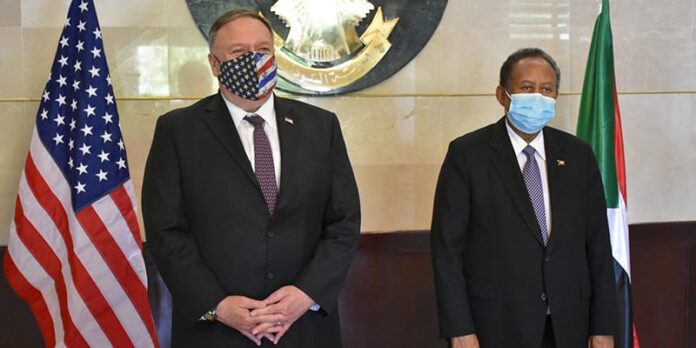Authors: Ronen Bergman and Declan Walsh
Affiliation: The New York Times
Organization/Publisher:The New York Times
Date/Place: September 29, 2020/New York, USA
Type of Literature: Commentary
Word Count:1600
Link: https://www.nytimes.com/2020/09/27/world/middleeast/sudan-us-israel-peace-recognize.html
Keywords: Sudan, Recognition of Israel, US Focus
Brief:
Trump’s administration has been striving to convince Arab states to normalize their relations with Israel and establish diplomatic ties before the November presidential election. Recently, the UAE and Bahrain have announced their commitments to normalize their relations with Israel. Sudan is the next focus of the US campaign, where the negotiation has already started, but delayed due to differences among Sudanese transitional elites towards normalizing ties with Israel and disagreements over the size of financial inducements pledged to Sudan in return for its recognition of the Zionist state. Moreover, the US administration has linked the recognition of Israel to the removal of Sudan from its list of terrorism-sponsoring states, a strategy that has prevented Sudan from receiving financial aid, debt relief, and foreign direct investment for the past three decades. A week before, Sudan’s de facto leader General Abdel Fattah al Burhan, flew to the United Arab Emirates for informal meetings with American and Emirati authorities on the prospective financial assistance packages for Sudan, which many observers call to “sell recognition” of Israel. Sudan had been offered, said one Sudanese official, about $800 million in direct funds and investment that would mostly come from U.A.E and the United States, and about $10 million from Israel. The deal has failed due to the disagreements on the amount of financial packages by Sudanese officials who requested $3 to $4 billion to recover their country’s economic crisis. However, recognition of Israel is a highly sensitive and contentious issue that could spoil the country’s fragile ongoing political transition, as popular hostility to Israel might still serve Islamist political forces’ political mobilization.
By: Jemal Muhamed, CIGA Senior Research Associate




